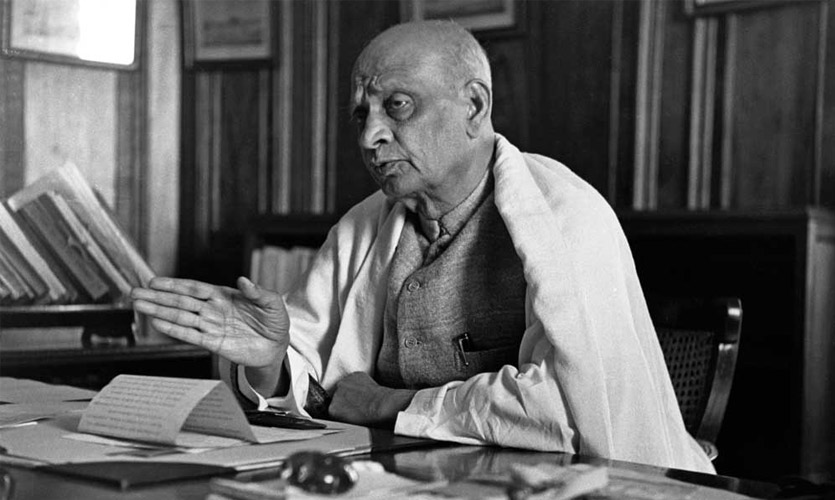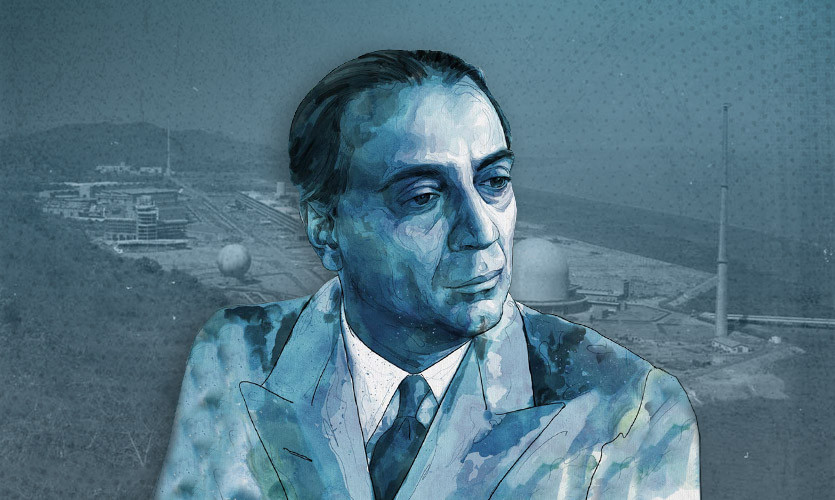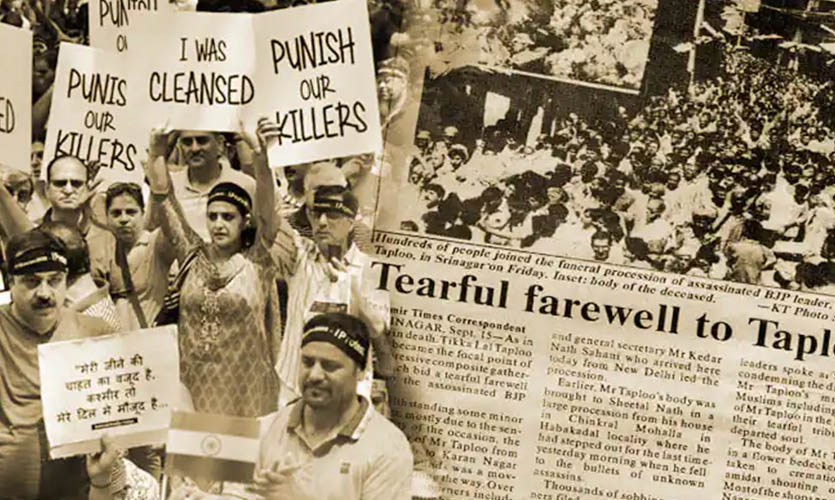“Patel possessed the organising ability of Bismarck, the astute statesmanship of Chanakya, and the single-minded devotion to the cause of national unity of Abraham Lincoln.”
– V.V. Giri, fourth president of India
Born in Nadiad on this day in 1875, Sardar Vallabhbhai Patel has been immortalised as the statesman who made common sense heard to the elite decision-makers of India.
From Vallabh to Sardar
Vallabhbhai Patel’s leadership of the Bardoli satyagraha earned him the title of Sardar. The non-violent farmer agitation of 1928 set the stage for upholding the rights of the farmers (re: landowning elite). Jan Breman says in his piece for Scroll.in that the success of the movement established the Congress as “a diligent and effective protector of the peasantry”. His article presents a counter to Ramachandra Guha’s column, which draws a far-fetched parallel between the 1928 movement and the farmers’ protest today. Guha quotes one of Patel’s speeches that reads, “There will be a satisfactory settlement only when the government’s attitude changes. When there is a change of heart, we shall immediately find that bitterness and hostility, which now move the Government to action, have been replaced by sympathy and understanding.” While the merits of the farmers’ protest today are still debatable, its leaders certainly do not seem to share Patel’s harmonious sentiment.
Patel not only managed to reverse the unfair taxation levied on the farmers but also reclaimed the handful of the sold properties and land. His lesson of unity and fearlessness have fuelled our so-called agrarian leaders that ensure our sustenance. A “son of the soil”, Patel was one of the pioneers of India’s freedom movement. Four decades after the Indian National Congress’ inception, he was the first party president with a rural background. Furthermore, when the first prime minister of India was to be elected, 12 out of 15 Pradesh Congress Committees had chosen Patel for the post (Patel withdrew his name from the contest on Gandhi’s insistence. Gandhi seemed to think that Patel would not mind being the second in command, but the same could not be said for Nehru).
The Kashmir Debacle
Sardar Patel along with V.P. Menon played a big hand in the accession of the 562 princely states before August 15, 1947, ensuring the integration of India. Patel’s foresight regarding Kashmir was impeccable. Time and again, various experts and publications independent of the mainstream have attempted to hypothesise a different future if Sardar Patel was allowed to be the first prime minister of independent India instead of Pt. Jawaharlal Nehru. The current prime minister, BJP leader Narendra Modi has claimed in the Lok Sabha that had Patel been appointed as the PM in 1947, no part of Kashmir would have ended up in Pakistan’s hands. However, had Patel been the PM, Kashmir would most likely have been handed over to Pakistan much earlier.
In his book, ‘The Story of the Integration of the Indian States’, V.P. Menon states that Nehru was always in favour of integrating Kashmir into India. Contrary to popular belief, Sardar Vallabhbhai was initially against the inclusion of Kashmir in India and was willing to trade it for Hyderabad. It made sense at the time given the demographics and the fact that the partition was to be done based on the two-nation theory. While both princely states had a Muslim majority population, since Hyderabad is geographically in the heartland of India, owing to regional continuity, letting it be a part of Pakistan was not an option. Patel wanted to leave it up to Hari Singh, the ruler of Kashmir at the time and believed that the people’s opinion must be respected. However, he changed his mind when Pakistan decided to accept Shah Nawaz Bhutto’s decision to have Junagadh accede to Pakistan. The majority Hindu population of Junagadh enabled Patel to confidently suggest a plebiscite in the region. Thus the idea of plebiscite in Kashmir can be attributed to the prior context of Junagadh. Noteworthy, when Patel asked the people of Kashmir about their will, most of them said they wanted to be a part of India. A plebiscite was carried out in the state on February 20, 1948, in which, only 91 out of the 2,01,457 registered voters cast their vote in favour of Pakistan.
An analysis of his various letters, conversations and speeches reveals what he thought about Kashmir at the later stages. “In Kashmir we are spending crores, (yet) if there is a plebiscite in the Valley, we are bound to lose,” said Patel to R.K. Patil, member of the first Planning Commission, on September 28, 1950. “I can solve Kashmir in six months. I would send Sikh settlers to the Valley,” he said to Achyut Patwardhan, founder of the Socialist Party of India (as narrated by Patwardhan to Rajmohan Gandhi in Madras, on March 24, 1987).
It is still difficult for historians to tell where exactly Sardar Patel stood on Kashmir since his approach towards it was multi-layered and evolved over time. Gandhi has written, “Kashmir was Nehru’s baby and Vallabhbhai made no move to pick it up.” However, while Nehru and Patel stood in agreement most times, as per various accounts, it was Patel’s decisiveness that saved the capital of Srinagar from the insurgency carried out by the tribesmen from across the border in 1947. When asked by Lord Mountbatten about the military situation in Kashmir after its accession to India, the army chief, Field Marshal Sam Manekshaw recalls saying, “The tribesmen are busy looting and raping about nine kilometres from Srinagar… If they once get in, we’ve lost Kashmir because we won’t be able to fly troops in…” Manekshaw continues, “So he (Mountbatten) looked at Nehru, and Nehru talked and all. Until Sardar Patel lost his temper.” Reportedly, Patel said, “Jawaharlal do you want Kashmir, or do you want to hand it over?” To which Nehru said, “Of course, Kashmir is ours now.” As per Manekshaw’s account, before Pt. Nehru could issue orders, Sardar Patel said, “You have received your orders,” directing the Indian Army to fly troops into Kashmir. Manekshaw says that it was also Sardar Patel’s decision to hand over the situation in Calcutta to the army to bring an end to the rioting.
A symbol of unity, Patel never shied away from taking extreme measures when necessary. A distinguished statesman at the most critical time in India’s history, Patel is responsible for the country’s unification and also teaching its people how to put India’s enemies in their place.
“Every citizen of India must remember that he is an Indian and he has every right in this country but with certain duties.”
– Sardar Patel
The Horus Eye is a weekly column written by Divya Bhan analysing current affairs and policies. This column does not intend or aim to promote any ideology and does not reflect the official position of The Sparrow.
Also read: Kashmiri Pandits: Exiled With No End In Sight
Also read: Has Communal Violence In Bangladesh Justified The Need For CAA?










